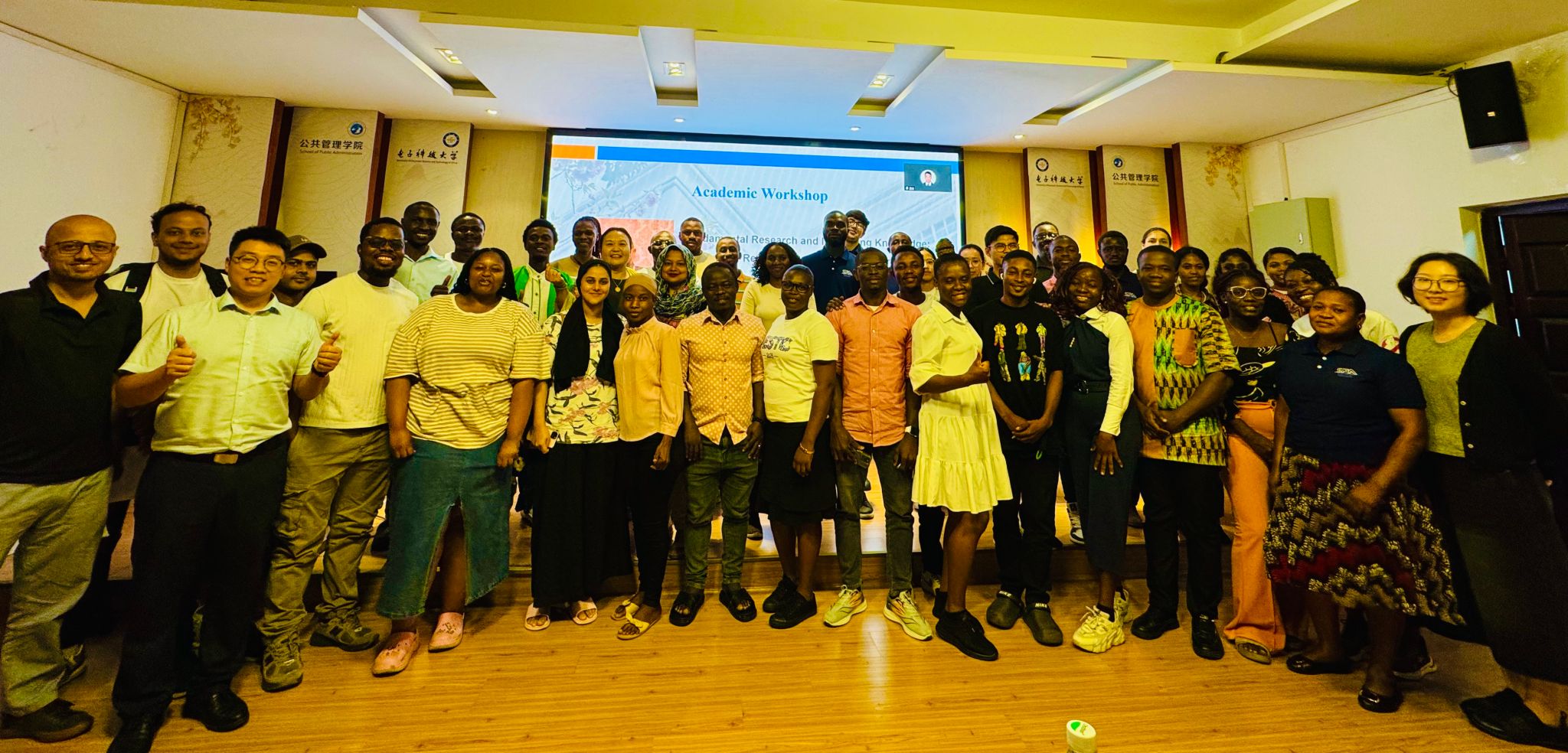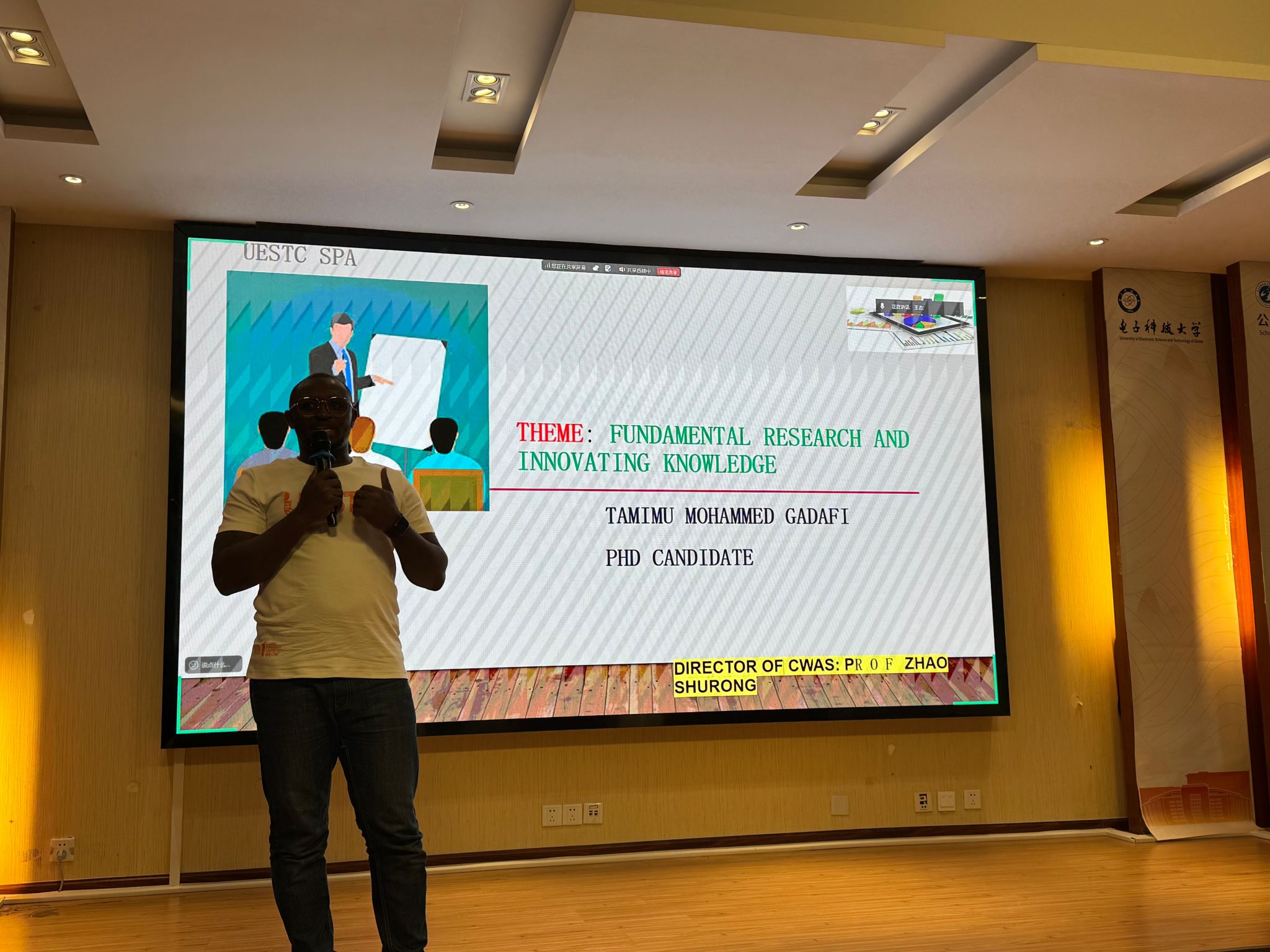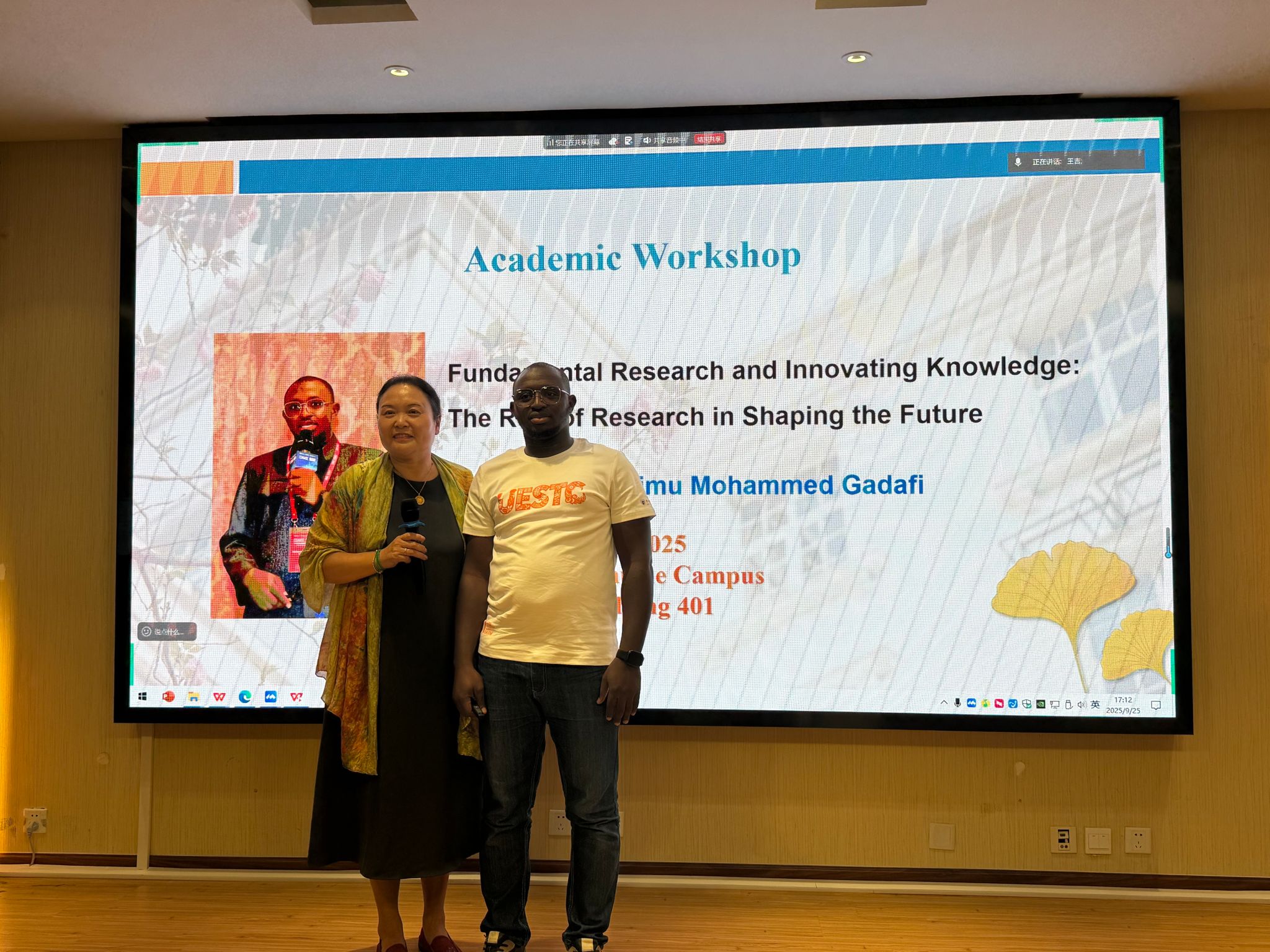On September 25, 2025, the School of Public Administration (SPA) welcomed an engaging and thought-provoking academic lecture delivered by Tamimu Mohammed Gadafi, a doctoral candidate in Management Science and Engineering at the School of Economics and Management (SEM), and a young scholar at the Centre for West African Studies (CWAS-UESTC).

Titled “Fundamental Research and Innovating Knowledge: The Role of Research in Shaping the Future”, the lecture was attended by Master’s and PhD students from SPA and SEM, alongside faculty members and research associates. In his address, Gadafi emphasized that research is not merely an academic obligation but a transformative force capable of reshaping societies, economies, and global knowledge systems.
“Research is the very backbone of innovation,” stated Gadafi. “As graduate students, you are not just consumers of knowledge, you are its creators. Each question you ask, each methodology you refine, contributes to the larger pool of human understanding that shapes our world.”
Drawing from his interdisciplinary background in various fields, Gadafi outlined a structured approach to conducting high-impact fundamental research. He highlighted six essential steps:
1. Formulating a clear, curiosity-driven research question
2. Conducting a comprehensive literature review
3. Selecting an appropriate methodology, qualitative, quantitative, or mixed approach
4. Rigorous data collection and analysis;
5. Drawing meaningful conclusions with theoretical or practical contributions and
6. Upholding ethical integrity and transparency throughout the research process.
He stressed the importance of asking "why" and "how" questions that challenge existing paradigms, noting that groundbreaking discoveries often emerge from simple curiosities that others overlook. “The best research begins not with certainty, but with doubt,” he remarked.
Gadafi also shared insights from his own research journey, including his collaborative work on projects with Professor Zhao Shurong, Director of CWAS-UESTC and many Professors and Colleagues in UESTC and beyong. These projects, he explained, exemplify how fundamental research can bridge theory and real-world impact, particularly in resource-constrained settings across Africa.

In addition to methodological guidance, Gadafi encouraged students to embrace failure as part of the scientific process, foster collaboration across disciplines, and remain committed to ethical and transparent. “Your credibility as a researcher rests on honesty, rigor, and accountability,” he said. “Never compromise on these values.”
The session concluded with some Q&A, where students engaged with Gadafi on topics ranging from AI in public administration to publishing strategies and cross-cultural research challenges. Many attendees praised the lecture for its clarity, inspiration, and practical relevance.

Prof. Zhao Shurong, Director of SPA International Program and the Director of CWAS-UESTC, commended Gadafi’s contribution: “This lecture reflects the mission of SPA and CWAS, to nurture globally minded scholars who use research to drive sustainable development in the world. Gadafi embodies the spirit of transnational academic excellence.”
SPA and the Centre for West African Studies (CWAS) look forward to hosting more such academic dialogues that promote knowledge exchange, inter-school collaboration, and innovative thinking for a better future.